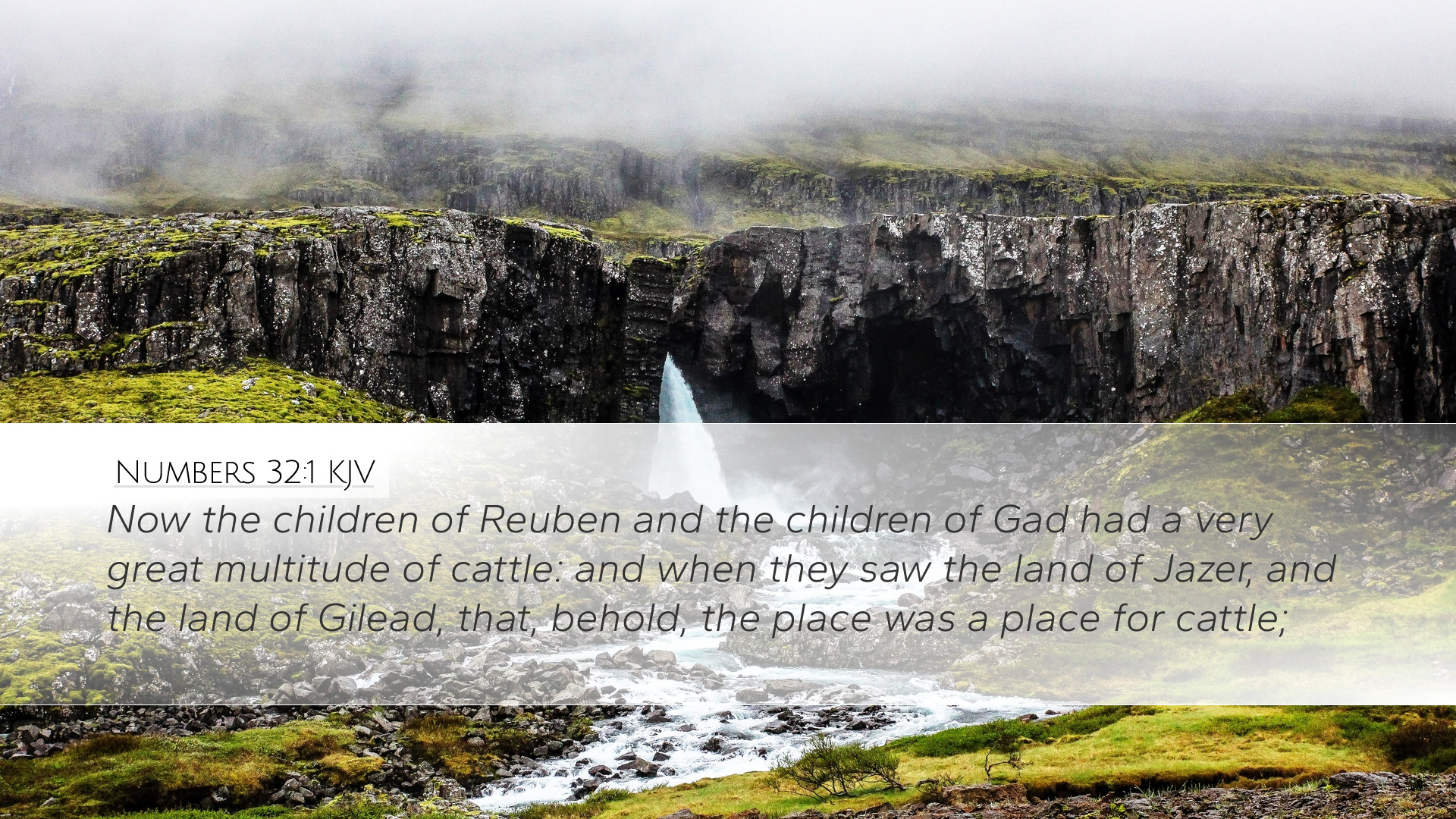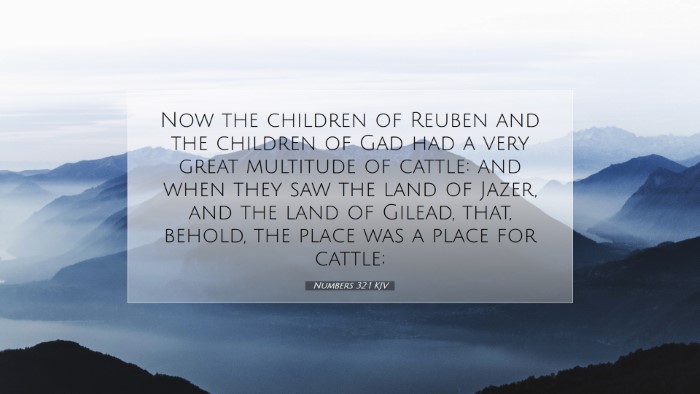Commentary on Numbers 32:1
Verse Context: Numbers 32:1 states: “Now the children of Reuben and the children of Gad had a very great multitude of cattle: and when they saw the land of Jazer, and the land of Gilead, that, behold, the place was a place for cattle.” This verse introduces a pivotal moment for the tribes of Reuben and Gad, marking their decision regarding their inheritance in the land promised by God.
Historical and Theological Significance
Matthew Henry's Insight: According to Matthew Henry, this verse shows the priorities of the Reubenites and Gadites. They were predominantly concerned with their material prosperity and the welfare of their livestock rather than the collective journey of the Israelites toward the Promised Land. Their request for land east of the Jordan River signified a potential division in loyalty and commitment to God’s plan.
Albert Barnes Commentary: Barnes emphasizes the importance of understanding the geographical and socio-economic realities faced by these tribes. The lands they desired were fertile and favorable for cattle, which could significantly enhance their wealth and status. However, Barnes also cautions that their desire must be weighed against their spiritual responsibilities — the obligation to support the other tribes in their quest for the Promised Land.
Exploration of Motivations
Adam Clarke's Perspective: Clarke suggests that the motivations behind the requests of the tribes reveal a contradiction of faith. While prosperous, their decision to settle in Jazer and Gilead could indicate a lack of trust in God’s promises. Clarke notes a critical point where prosperity can blind individuals or groups to the broader spiritual journey, leading to a misplaced focus on the temporal rather than the eternal.
The Nature of Desires
- Desire for Security: The tribes’ pursuit for land was perhaps a natural human inclination toward security and stability.
- Material Wealth: Their priority on cattle and land highlighted a reliance on physical wealth rather than spiritual wealth.
- Spiritual Implications: This desire for immediate rewards over the promises of God carries profound lessons on faith and obedience.
The Response from Moses
Contextual Implications: Moses’ response, which follows soon in the text, indicates his concern that these tribes' actions could embolden others to forsake their commitments to God. This evokes a reminder for pastors and theologians to consider the ramifications of such decisions in their communities.
Leadership Challenges
- Guarding Against Division: Moses had to ensure that their desire did not lead to a division among the tribes, which could weaken their collective strength.
- Focus on Collective Mission: The Israelites were on a journey, and it was crucial that every tribe remained committed to the shared vision and mission.
- Faithfulness to God’s Plan: The response calls for leaders to articulate the importance of remaining faithful to God’s larger plan instead of settling for less.
Lessons for Contemporary Believers
Modern Application: The account of Reuben and Gad serves as a sobering reminder for contemporary believers, particularly in leadership. It underlines the necessity of prioritizing spiritual aspirations over mere earthly comforts.
Reflection Points
- What are our desires? Examining whether our aspirations align with God’s purposes or reflect a mere longing for the comforts this world offers.
- Community Responsibility: Reflecting on how personal decisions impact the faith community, reminding believers of their commitment to each other.
- Faith in God’s Promises: Encouraging leaders and scholars to inspire congregations to trust in God’s greater promises rather than settling for present-day comforts.
Conclusion
In essence, Numbers 32:1 invites an introspective journey into the motivations behind our desires. By drawing upon the insights of prominent commentators, we are reminded of the delicate balance between personal aspirations and community obligations. It challenges pastors, students, and theologians to critically assess how these dynamics influence the church body as a whole.


